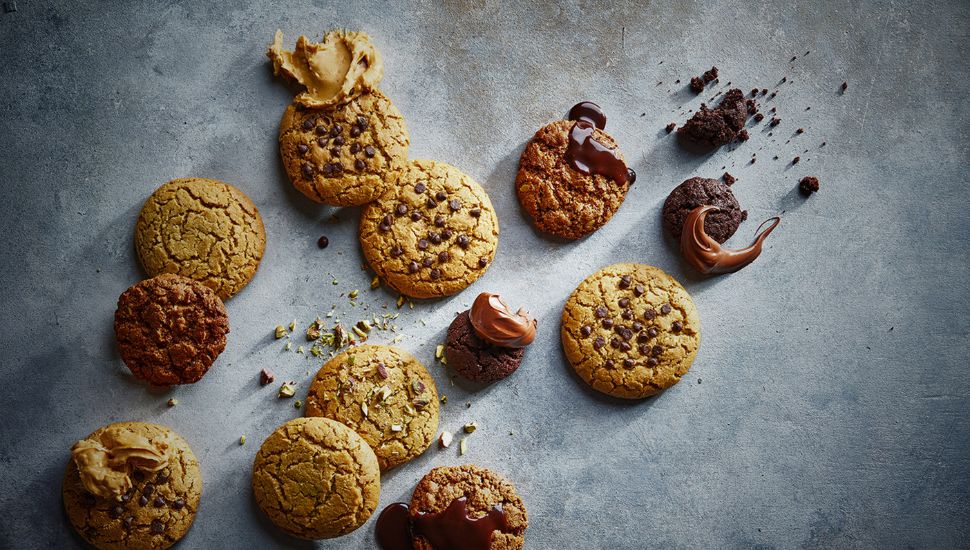
If you bake cookies repeatedly, but they always turn into something flat, then you must be worried about what you are doing, that is, making your cookies flat.
They are one of the most irresistible and delicious treats to make, and sometimes even after following the instructions religiously, they turn flat.
The spreading of cookies is nothing new, and everyone who is a baking enthusiast has suffered from flat cookies (or cookies that don’t rise at all!), but that doesn’t mean you can’t fix your cookies.
In this cookie blog, we will talk about the most popular reason why cookies become flat and how you can fix that issue.
But we need consistency from your side to read till the end of this blog. Because believe it or not, you will learn a lot from this blog on cookies.
In my seven years of baking, I’ve made many mistakes that destroyed my cookies and other baked items. But I kept on trying, and now it’s your turn to try and fix the cookies issue once and for all.

Now, without wasting time, let’s get straight to the mistakes you might be making while preparing your cookies and how you can fix them.
#1- The temperature of the oven is too high
Problem: if you have been trying different recipes, but the cookies still turn out to be flat, then there is a chance that the oven temperature is too high.
With high temperatures, the butter melts away more quickly than it should, making the other ingredients melt with it instead of firming it into a proper structure. This makes the cookies spread like they have been flat with a pan.
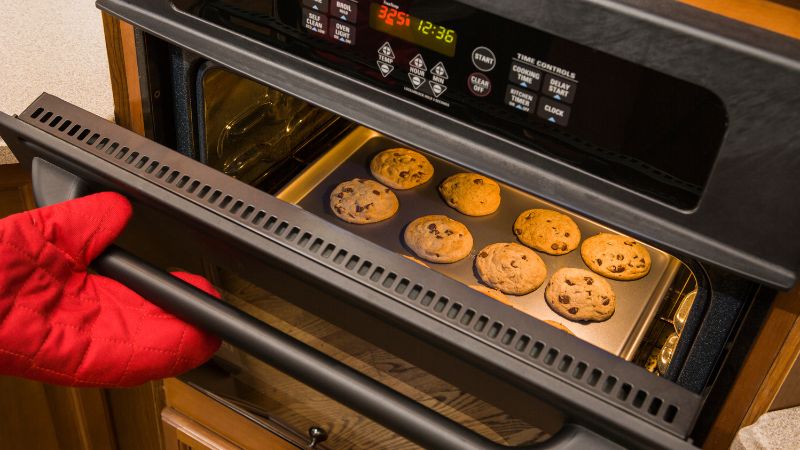
Solution: the best way to bring the temperature a bit down is by opening the oven door halfway through for 15 minutes while the flame is still on, this will release all the extra heat, and then you can put your cookies in it.
Another option is to get an oven thermometer to check the oven’s temperature and adjust it according to the need of your cookies.
#2- The consistency of the butter was too soft
Problem: almost all cookies recipe tells you to use ‘soft’ or ‘room temperature’ butter, and it is vague considering soft can also mean flowy butter, and it can also mean butter that is in its shape but soft when you poke it.
However, the recipe means leaving the butter for 30 minutes on the -counter, which will turn the butter soft but still cool enough to stay in shape. –
When you touch the butter with your finger, it should get fingerprints on it without melting. And when you cream it with sugar, it should become fluffy.
The issue arises here: warm the butter more than you should, and all the air escapes from it, making it easily spreadable in the oven.
Solution: The quick fix to this problem is to prepare your cookie dough and then chill it so that the butter solidifies and the whole mixture comes at the same temperature.
Put it for 2 hours minimum of chilling, and when you touch it, you should feel the firmness in the dough. This way, the butter won’t melt quickly in the oven. And your cookies will rise.
Problem: consider this: you baked one back of cookies, which turned out great, but then you quickly transferred all the cookies from the baking sheet to make a new batch.
This is where the problem began, the baking sheet was hot, and you put cookies on it to bake. Obviously, they will spread because the butter began to melt before they started to cook because of the warm baking sheet.
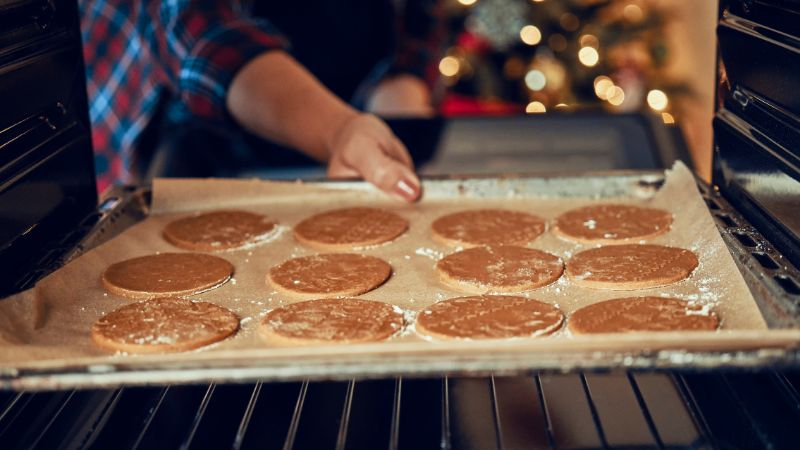
Solution: we know you might not have 2-3 baking sheets available. So, the option you have is to bake one batch, take the baking sheet and cool it under water.
Or maybe place it on the counter, and it will cool down in minutes. Once the sheets are at room temperature, you can put the other batch of cookies on them and see them magically rise.
#4- The amount of sugar is excessive
Problem: Butter isn’t the only reason your cookies get flat. Sugar is also the culprit (especially white sugar).
If you have added white sugar to your cookies and that too in an excessive amount (more than the recipe said), then there is a 90% chance that your cookies will become flat and spread all over the sheet.
Solution: what you can do to stop the spreading of cookies is that you add half white sugar and half brown sugar.
For example, if the recipe doesn’t include brown sugar and asks for only 1 cup of white sugar, then you should add half a cup of white sugar and half a cup of brown sugar.
This won’t only stop your cookies from spreading but will also make them gooey and irresistible.
#5- There appears to be an insufficient amount of flour used
Problem: Perfect cookies rely on the ratio of the ingredients. If you use less flour and more sugar, the will become flat.
If you use too much flour and less butter, they will become cracked and dry. Adding too much baking soda will make them salty and flat. So, if you are not adding enough flour for whatever reason, they will most likely become dry and flat.
Solution: if you are out of flour or can’t add it because the dough is ready, you can try to refrigerate the dough to make it a bit stable. It might not cover up for less flour, but it can help bring some shape to the cookies.
Apart from this, you may also include a similar amount of flour your recipe asks for to make your cookies perfect. Use a kitchen measuring cup or utensil.
Problem: when you are mixing everything to make cookies, the dough can become super soft and mushy; its butter can melt, making it flat when baked.
Some recipes tell you to use melted butter; if these are the instances, you should know that freezing or chilling your dough is required. Otherwise, the dough will spread.
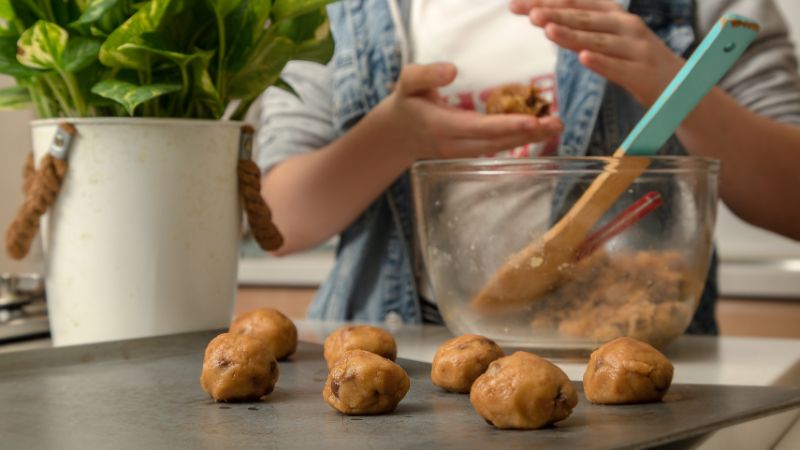
Solution: always chill your cookie dough even if your recipe doesn’t tell you to. You can chill for longer, but 30 minutes is the minimum time).
One thing I understood during all those baking years is that you should try and bake one tester cookie; this way, you will know how the batch will turn out, and you will avoid making them flat.
#7- Not enough baking powder was used
Problem: if you add too little baking powder, your cookies will become flat. Baking powder, like baking soda, adds carbon dioxide to the cookie dough, increasing its air pockets and making it rise.
So if you don’t add it, you know what will happen. Baking soda and powder look similar, but they can’t replace each other, so if you have added soda instead of powder, then your cookies can turn flat.
Solution: always try to add at least two pinches of baking powder along with baking soda so that your cookies rise nice and fluffy.
But don’t add too much powder, as too much powder can make your cookies flat. Try to use the amount in the recipe.
#8- Either the baking sheet was reused, or it was over-greased
Problem: if you reuse your baking sheets too many times without cleaning them or greasing them, then the butter in the cookies and the grease on the sheet can react and turn your cookies into a flat mess. They will turn into something oily and greasy, which you won’t enjoy eating.
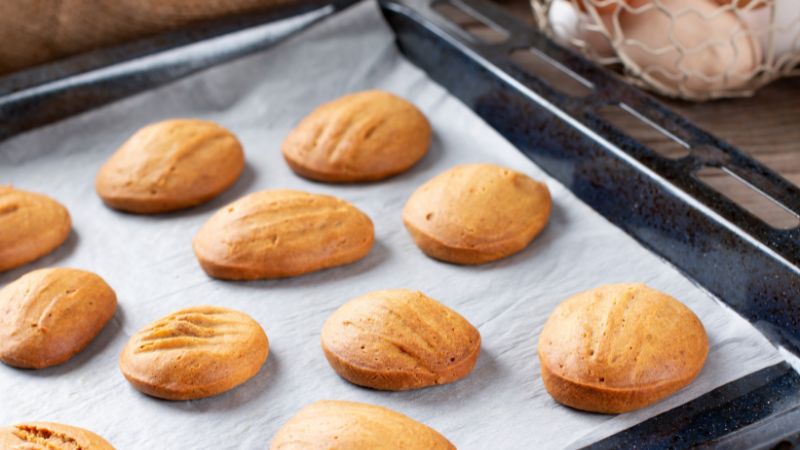
Solution: don’t grease your baking sheet because the cookies already have butter in them, which melts and is sufficient to stop them from sticking on the surface.
You can additionally use baking mats made of silicone or butter paper to keep them from sticking on sheets and to keep them nice and fluffy. You can also remove the cookies easily from the silicone mat and butter paper.
#9- The baking soda was old or expired
Problem: if you are doing everything right, but the cookies are still becoming flat, your rising agent might be the season.
Both baking powder and soda help the cookie to get its proper shape, and if they aren’t fresh, then the cookies won’t rise.
Instead, they will spread on the sheet. You are at fault for using old or expired baking soda or baking powder.
Solution: baking soda and baking powder stop doing their job when they are old or expired. You should regularly replace them to keep them doing their work.
Try to replace both these ingredients every six months, and if you have a hard time remembering dates, then write the date of purchase on their bottles.
Don’t use old or expired ingredients because they can negatively affect your cookies and turn them into a flop.
Final Verdict:
Flat cookies are perfectly safe and delicious to eat 9sometimes they are even crunchy, which makes them delicious) but the fun and enjoyment fluffy cookies give you can’t be compared to flat cookies.
Now you know all the facts contributing to cookies becoming flat, and you can solve the issues with the solutions we provided.
Consider these instructions to get ‘your’ foolproof trick or solution to making wonderful cookies that people can’t get enough of.
We know it might seem hectic and too much work to get the solution to your problem, but once you find out the problem, then solving it is just a matter of minutes. So go ahead and check which issue is causing your cookies to get flat.
FAQs (Frequently Asked Questions)
Yes, if you are using too old baking soda or expired one, there is a huge chance that they will become flat or not as fluffy as you want them to.
Try to use baking soda that is fresh and not expired to get the best results and well-puffed-up cookies.
If you want to use the dough immediately, chill it for 30 minutes to 2 hours so that the butter firms up and your cookies don’t get flat.
But if you want to use them after some time, then you can refrigerate them for 24 hours, and before using it, leave them for 5 minutes on the counter to get the best results.
Baking soda is the magical product that will make your cookies rise and fluffy.
However, if you use old baking soda or an old one, then it can also make your cookies flat. Use fresh baking soda in the right quantity for the perfect result.
Yes, it does make the cookies fluffy. When you add baking soda to the dough, it reacts with other ingredients and releases CO2 gas. This makes the dough super soft and fluffy.
However, too much soda can spoil the whole mixture, and that is why you should carefully add as much as the recipe asks you to.









